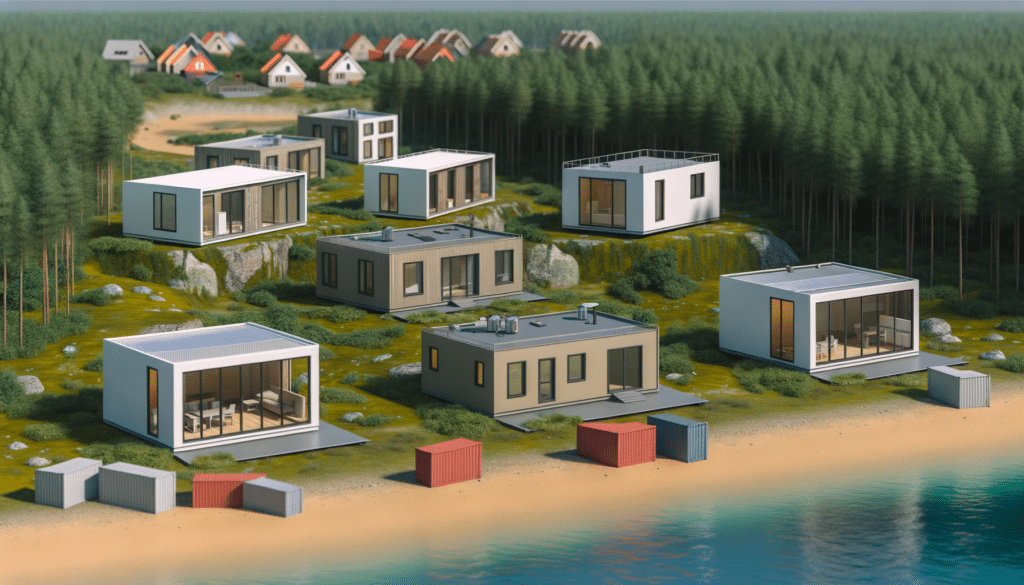The Rise of Modular Prefab Homes: A Smart Housing Solution
The Appeal of Modular Prefab Homes
Modular prefab homes, also known as modular homes, have seen a rise in popularity due to their innovative construction and design flexibility. These homes offer a variety of benefits, making them appealing to a broad audience. One of the main advantages is the speed of construction. Since the home components are pre-built in a factory setting, the time required to assemble and complete the house on-site is significantly reduced compared to traditional building methods. Additionally, this controlled construction environment helps in maintaining high-quality standards and reduces the likelihood of weather-related delays.
Another notable feature is the cost efficiency associated with modular prefab homes. Building materials are often purchased in bulk for multiple projects, leading to lower costs. The controlled building environment also minimizes waste, making these homes not only cost-effective but also environmentally friendly. This combination of reduced construction time and lower material costs provides a budget-friendly option without compromising on quality.

Customization and Design Flexibility
Modular prefab homes offer a wide range of customization options, allowing homeowners to design a space that meets their specific needs and tastes. Many modular home manufacturers provide various floor plans and design styles, from contemporary to traditional. Homeowners can choose everything from the layout of the rooms to the type of finishes and fixtures. This level of personalization is one of the key attractions of modular homes, ensuring that each home is unique and tailored to the owner’s preferences.
Furthermore, modular homes are designed with flexibility in mind. They can easily be expanded or modified as needs change. Whether planning for additional family members, home offices, or extra recreational spaces, modular homes can adapt without requiring extensive renovations. This adaptability ensures that your home can grow and change alongside your lifestyle.
Quality and Durability
Quality is a significant aspect of modular prefab homes. Since the construction occurs in a controlled factory setting, each component undergoes rigorous inspection and quality control checks. This results in a consistent building process, ensuring that all parts meet the required standards. Moreover, the use of precise manufacturing techniques contributes to the overall durability of the home. Modular homes are often built to withstand transportation to the site, which means they are constructed to be robust and long-lasting.
The materials used in modular homes are typically the same as those in traditional on-site builds, guaranteeing high-standard safety and durability. Additionally, modular homes must comply with local building codes and standards, assuring homeowners that their investment is secure and built to last. This stringent adherence to quality and regulatory measures provides peace of mind to modular home buyers.
Environmental Impact
Modular prefab homes are an eco-friendly housing solution, incorporating sustainable practices throughout the building process. The factory construction method generates less waste compared to traditional on-site construction. By reducing waste material and reusing excess materials where possible, modular homes have a smaller ecological footprint. This commitment to sustainability is a critical consideration for many modern homeowners who prioritize environmental responsibility.
Another aspect of the eco-friendliness of modular homes is energy efficiency. These homes are often designed with energy-saving features such as superior insulation, efficient heating and cooling systems, and sustainable building materials. These elements contribute to lower energy consumption and increased savings on utility bills. Consequently, choosing a modular prefab home can be a smart decision for those looking to reduce their environmental impact and promote sustainable living.
Future of Housing
The future of housing is leaning towards innovative and sustainable solutions, and modular prefab homes are at the forefront of this transformation. As urban populations grow and housing demands rise, the efficient construction and high-quality standards of modular homes provide a viable solution. The speed and flexibility offered by modular construction can meet the needs of varying demographics, from young professionals to growing families and retirees.
Additionally, advancements in technology and materials will continue to enhance the appeal and feasibility of modular homes. Innovations in energy-efficient systems, smart home technology, and sustainable building practices will further establish modular prefab homes as a forward-thinking choice. As the housing market evolves, modular homes will likely play an essential role in shaping future living spaces, offering a blend of efficiency, quality, and customization that traditional building methods struggle to match.
